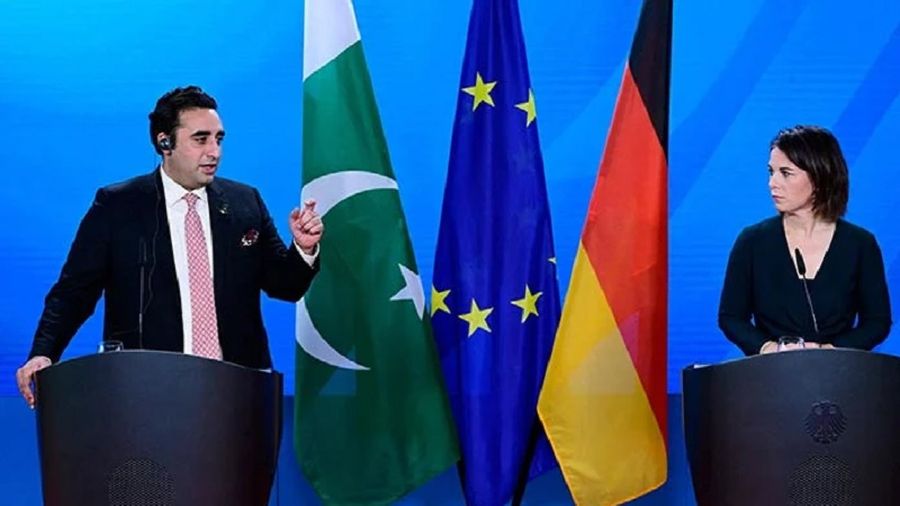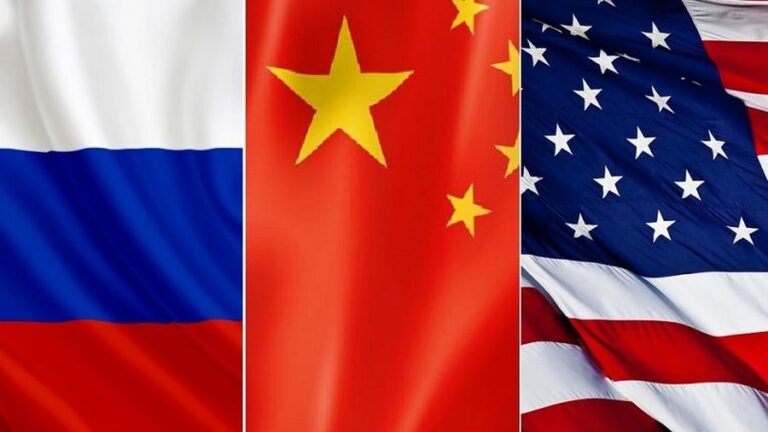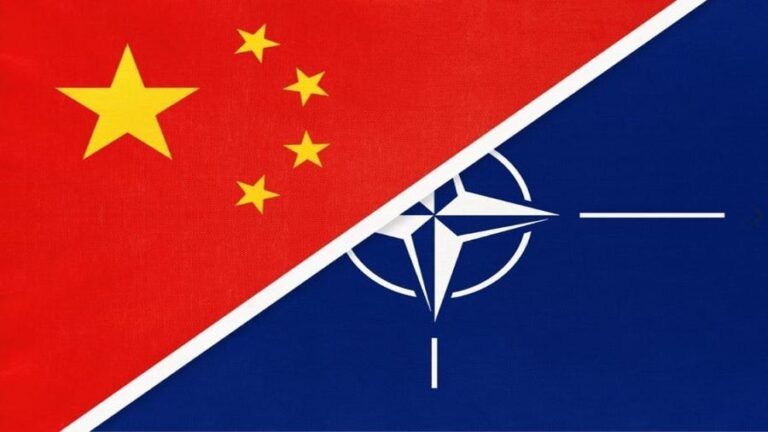Interpreting the Pakistani Foreign Minister’s Curious Remarks About Russia & Nuclear Weapons
It’s inconceivable that he was unveiling a new nuclear doctrine by condemning the possible first use of such weapons by Russia as “absolutely not an option” and thus implying that Pakistan practices such a policy as well, but by saying what he did in his official capacity as Foreign Minister during a press conference with his German counterpart, he nevertheless conveyed such an intention even if he didn’t mean to.
Pakistani Foreign Minister Bilawal Bhutto Zardari (BBZ) publicly condemned Russia’s nuclear doctrine during a press conference with his German counterpart. In his words, “This is absolutely not an option. And surely we’ve agreed throughout history, and should continue to agree: The use of nuclear weapons is not an option, for anyone, anywhere in the world. We’re worried about the direction that the events are taking. We continue to respect and insist on the respect of UN resolutions, international law.” These remarks are curious considering the fact that Pakistan hasn’t promulgated a no first-use doctrine.
Sadia Tasleem, a lecturer at Quaid-i-Azam University’s Department of Defense and Strategic Studies in Islamabad, published a detailed report about “Pakistan’s Nuclear Use Doctrine” at the Carnegie Endowment for International Peace in 2016. In it, she declared that one of her country’s constants is that “Since the early years of its nuclear program, Pakistan has refused to declare a no-first-use policy; the country retains the option of using nuclear weapons first in the event of a war.” This policy is promulgated as part of its deterrence policy to presumably prevent an overwhelming Indian attack.
That principle, however, is precisely enshrined in Russia’s nuclear doctrine too. Presidential Spokesman Dmitry Peskov reminded everyone of this last month when telling them that such means can be employed in self-defense as an absolute last resort “in response to a conventional attack that threatens the very existence”, which mirrors Pakistan’s de facto nuclear doctrine too. It’s therefore surprising that BBZ would condemn this policy considering that his own country practices the exact same thing. Some clarity can perhaps be found in a recent report by Express Tribune that coincided with his remarks.
This newspaper of record cited unnamed diplomatic sources to inform their audience that “the US is certainly keen that Pakistan abandons its policy of ‘neutrality’ on Russia-Ukraine conflict.” The larger context within which this American pressure is being exerted upon Pakistan concerns the post-modern coup that Washington orchestrated in that South Asian state last spring against former Prime Minister Imran Khan as punishment for his independent foreign policy, especially its Russian dimension. The grand strategic goal is to turn Pakistan into the “Faultline of Eurasia” for obstructing multipolarity.
While it remains unclear whether Pakistan will capitulate to its traditional overlord’s pressure at the UN, and it very well might not due to its urgent need to explore food and fuel options from Russia as well as the importance of not making its top Chinese strategic partner suspect that it’s “defected” to the US, BBZ nevertheless seemed to have winked in America’s direction by publicly condemning the Kremlin’s nuclear doctrine. This was likely done to keep up appearances while meeting with his counterpart from the EU’s de facto leader in the hopes of obtaining more aid from her country and the bloc more broadly.
It’s inconceivable that he was unveiling a new nuclear doctrine by condemning the first use of such weapons by Russia as “absolutely not an option” and thus implying that Pakistan practices such a policy as well, but by saying what he did in his official capacity as Foreign Minister during a press conference with his German counterpart, he nevertheless conveyed such an intention even if he didn’t mean to. This observation speaks to how short-sighted and self-interested his curious remark was, further reinforcing the suspicion that it was done for ulterior motives related to EU aid and US pressure.
It’s not surprising that he’d make such a faux pas either since BBZ is diplomatically inexperienced and was only appointed to his present position for purely political reasons, both those related to short-term horse-trading in the coalition that replaced former Prime Minister Khan after the US-orchestrated post-modern coup and longer-term ones connected to the scenario of his country’s powerful Establishment potentially cultivating his rise as the next premier sometime in the future. For this reason, it was expected that he’d eventually make an embarrassing blunder about a major policy issue sooner or later.
The US-led Western Mainstream Media (MSM) approved of the anti-Russian spirit behind his curious remarks and thus didn’t regard it as worthwhile to dig deeper into the implications behind them with respect to Pakistan’s own nuclear doctrine. BBZ was given a pass since his country’s post-modern coup regime is recalibrating its grand strategy in a direction that advances some American interests in the New Cold War. It would therefore have been counterproductive for the US to encourage its media proxies to publicly embarrass him by pointing out his faux pas.
To wrap it all up, BBZ’s curious remark should be seen as emblematic of his diplomatic inexperience and the fact that his position is a purely political posting totally disconnected from merit. The domestic calculations related to his appointment overlooked the high likelihood that he’d make a major policy blunder sooner or later, yet the damage is manageable for the most part due to his country’s restored status within the US’ “sphere of influence”. Be that as it may, leading multipolar countries like Russia and especially China will certainly notice what just happened and draw the appropriate conclusions.







